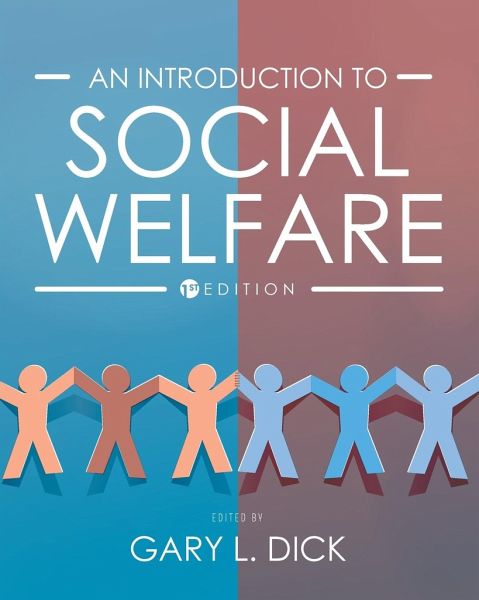
An Introduction to Social Welfare
History, Perspective and the Role of Advocacy
Herausgeber: Dick, Gary L.
Versandkostenfrei!
Versandfertig in 1-2 Wochen
114,99 €
inkl. MwSt.

PAYBACK Punkte
57 °P sammeln!
An Introduction to Social Welfare: History, Perspective, and the Role of Advocacy focuses on the political and societal causes of human suffering that contribute to the marginalization of vulnerable populations in the context of American social welfare. It provides students with a collection of readings that explore systemic factors supporting and maintaining social injustice, including bias, political ideologies, classism, sexism, racism, and more. The anthology is organized into five units. Unit I examines the evolving landscape of social welfare in the U.S. through readings that discuss ide...
An Introduction to Social Welfare: History, Perspective, and the Role of Advocacy focuses on the political and societal causes of human suffering that contribute to the marginalization of vulnerable populations in the context of American social welfare. It provides students with a collection of readings that explore systemic factors supporting and maintaining social injustice, including bias, political ideologies, classism, sexism, racism, and more. The anthology is organized into five units. Unit I examines the evolving landscape of social welfare in the U.S. through readings that discuss identity-based democracy, partisan prejudice, social movements, and the impact of privilege. Unit II delves into the practice settings of social work, systems theory, intersectional approaches to inequality, and the emotional aspects of living in society. In Unit III, students are provided with a historical perspective on social welfare policies and how they've changed over time. Unit IV focuses on the challenges faced by vulnerable populations in contemporary society, addressing issues such as location-based disparities, health inequities, and the social roots of these disparities. The final unit explores various domains of social welfare, including social justice, immigration, policy practice, and the role of social workers in shaping social policy. Emphasizing the responsibilities of social workers to advocate for social justice and policies that positivity impact the health and wellbeing of society, An Introduction to Social Welfare is an ideal resources for foundational courses in social work practice.














